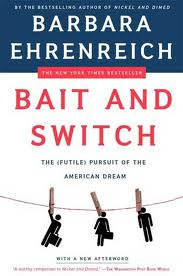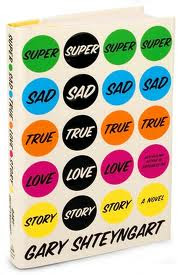 Alfred A. Knopf, 2010
Alfred A. Knopf, 2010
656 pages
Buy it (used) for $6.96 at BookbyteObama's 2004 to 2008 rise from barely-known state senator to President-elect stunned Americans and the world. At the time, few (not counting the extremist
"birther" contingency) asked where the man had come from, and what life lessons gave him the competency to ride the swelling wave of popularity behind his campaign--almost effortlessly, it seemed. What made him tick? How did he function, and what secret thoughts ran through that calm manner, those caterpillar-like eyebrows?
Presidencies are better understood in retrospect, but few leaders' characters have been as hard to pin down as Barack Obama's. David
Remnick's authoritative biography of the 44
th president avoids amplifying partisan perspectives by reserving judgment, and delves
deep into
Obama's history and his many transformations: the child, the scholar, the Chicago transplant, and the candidate. It starts well before
Obama's birth in Hawaii, with the stories of his Kenyan and Kansan grandfathers: Hussein
Onyango Obama, a village elder and cook for British colonialist forces; and Stanley Armour
Dunham, who as a boy discovered his mother's suicide, and later served in European theater of WWII. There is no shortage of research or detail, and the result is an objective, dispassionate inventory of
Obama's entire known history, illustrated with accounts from relatives, friends, allies and enemies, former teachers, students, and anyone who had the slightest contact with Obama at any stage in his life. The narrative is as even-tempered as the president himself.
Before you dig in, be warned that this is also a
tome that challenges the light reader. Just try finding a review that doesn't describe this work as "exhaustively researched." The information contained within is rich and rewarding, if you can objectively appreciate
Obama's story and suspend your opinion of his work and ethics. It's a chore to read, but a nice change for those of us who hear the President's voice filtered through the perspective of
Dreams of My Father and
The Audacity of Hope. Writing in the
Washington Post,
Gwen Ifill describes how
Remnick's investigation strips the gloss from
Obama's own memoir: where Obama was able to wax introspectively about the lost connection to his father and Africa,
Remnick traces the old man's decline following the return to Kenya: his slip into alcoholism,
womanizing, abuse, and political irrelevance. Also present are the strained ties between Obama and his mother, the subtle
classism and racism at the prestigious
Punahou School. Much has been made of
Obama's murky racial identity--black, but without the cultural stamp that marks many African Americans raised in the continental United States.
Remnick examines the period of
Obama's cultural awakening: his connections to people who challenged him in Hawaii, to the social cliques at universities in California and Massachusetts, and how he navigated the challenges to define himself.
There are some really interesting bits in this book. I was struck repeatedly at
Obama's faith in his greater destiny. Here was a man without any great birthright of money or prestige. Leaving Harvard Law School (and the President of the
Harvard Law Review, to boot), he could have walked into any number of firms and made a fortune. Instead he shunned the path to riches, deliberately entered the frustrating arena of community organizing, in a strange town where he was completely unknown, to earn under $30,000. He led an austere and ascetic life, and gained respect within prestigious circles for his intellect and ability to critically listen, but eschewed security and countless opportunity for the
right opportunity.
Remnick gives the impression that from early on, Obama knew he was destined for politics, but only when the time was right. One of my favorite moments in the biography is when Obama walks away from an offer to chair the Joyce Foundation, a non-profit that distributed $50 million a year in grants.
"It was a sweet job—around a million a year, two country-club memberships, and I thought, Here it is, finally the day that all our hard work would pay off," said Dan Shomon, who imagined working as Obama's chief aide at the foundation. "Barack could have given out money to all kinds of good, progressive groups. He went into the interview, though, and his hands were shaking for fear that he would get the job. He knew that if he got it, that was it—he would be out of the game, out of politics."
Time and again, Obama rejected opportunities that would've made him a rich, comfortable, and respected man. Reading the book, my hunch is that he walked away from tasks he felt were beneath his intellectual curiosity. He wanted to work on behalf of the public good, but to do that work in a capacity that matched a cocksure faith in his ability.
The Bridge leads right up to
Obama's election to the Presidency, an ascendancy without parallel in US history. In 2000, he was beaten black and blue in the race for US Representative against former Black Panther Bobby Rush. Four years later, he was giving the keynote address at the Democratic National Convention, and four years past that he emerged as the dark horse upset in the democratic primary and winner of the general election.
Remnick's account of this history is dense, but clear and easy to follow, and turns often to the themes of self-confidence, intelligence, and the sheer luck of circumstance.
Simon & Schuster Digital partnered with VYou.com to create Ask the Author, a digital venue for readers to interact with writers. On the new site, authors respond to reader-submitted questions through webcam videos.








